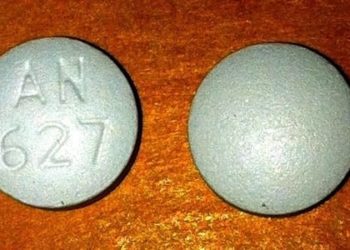The MooDFOOD Trial: Diet and food-related behavioral activation therapy not effective in preventing major depressive disorder in obese or overweight adults
1. In this randomized controlled trial, overweight or obese adults with subsyndromal depressive symptoms were just as likely to develop major depressive disorder (MDD) when treated with food-related behavioral activation therapy plus dietary supplementation than care as usual.
2. Food-related behavioral activation therapy was related to a significant improvement in generalized anxiety and depression symptom scores.
Evidence Rating Level: 1 (Excellent)
Study Rundown: Major depressive disorder (MDD) is the second leading cause of years-lived-with-disability. However, few studies have addressed interventions aimed to prevent MDD, especially in overweight or obese adults. In this randomized controlled trial, two nutritional interventions, multi-nutrient supplementation and food-related behavioral activation therapy, did not reduce the incidence of MDD after one year of follow-up compared to patients who received care as usual. Additionally, neither intervention reduced time to MDD onset. The food-related behavioral intervention did significantly reduce participant’s anxiety and depression symptom scores at one year.
Overall, while the interventions had a significant effect on self-assessed anxiety and depression symptom scores, they showed no effect on progression from subsyndromal symptoms to MDD. It is important to note that more than three-fourths of the subjects in this study were female and nearly one-quarter of the participants did not complete the one-year follow-up, thus attrition bias cannot be ruled out.
Click to read the study in JAMA
Click to read an accompanying editorial in JAMA
Relevant Reading: Eating styles in major depressive disorder: Results from a large-scale study
In-Depth [randomized controlled trial]: The MooDFOOD study was a 2 x 2 international randomized control trial that enrolled 1,025 patients with subsyndromal depressive symptoms between July 30, 2015 and October 13, 2017. Patients were randomized to receive dietary intervention (omega-3-omega acids, selenium, folic acid, vitamin D, and calcium) or placebo. Additionally, patients were randomized to receive group therapy sessions or none. After randomization, patients were followed for up to 1 year with self-assessments and the Mini International Neurpsychiatric Interview at 3, 6, and 12 months. The primary outcome was 12-month cumulative incidence of MDD. Overall, during the follow-up period, 105 (10%) patients developed MDD. 25 (9.7%) patients were in the placebo without therapy group, 26 (10.2%) were in the placebo with therapy group, 32 (12.5%) were in the supplement without therapy group, and 22 (8.6%) were in the supplement with therapy group. There was no significant effect of supplements (HR 1.05; p = .65), therapy (HR 0.91; p = .32), or supplements plus therapy (HR 0.91; p = .36) on the time of first onset of MDD. For secondary outcomes, it was found that food-related behavioral activation resulted in significantly lower generalized anxiety disorder scores at 12 months (p = .01). Additionally, there was a significant effect of supplements on reduction in depression scores on the Patient Health Questionnaire 9 (PHQ-9) at 12 months (p = .02).
Image: PD
©2019 2 Minute Medicine, Inc. All rights reserved. No works may be reproduced without expressed written consent from 2 Minute Medicine, Inc. Inquire about licensing here. No article should be construed as medical advice and is not intended as such by the authors or by 2 Minute Medicine, Inc.







